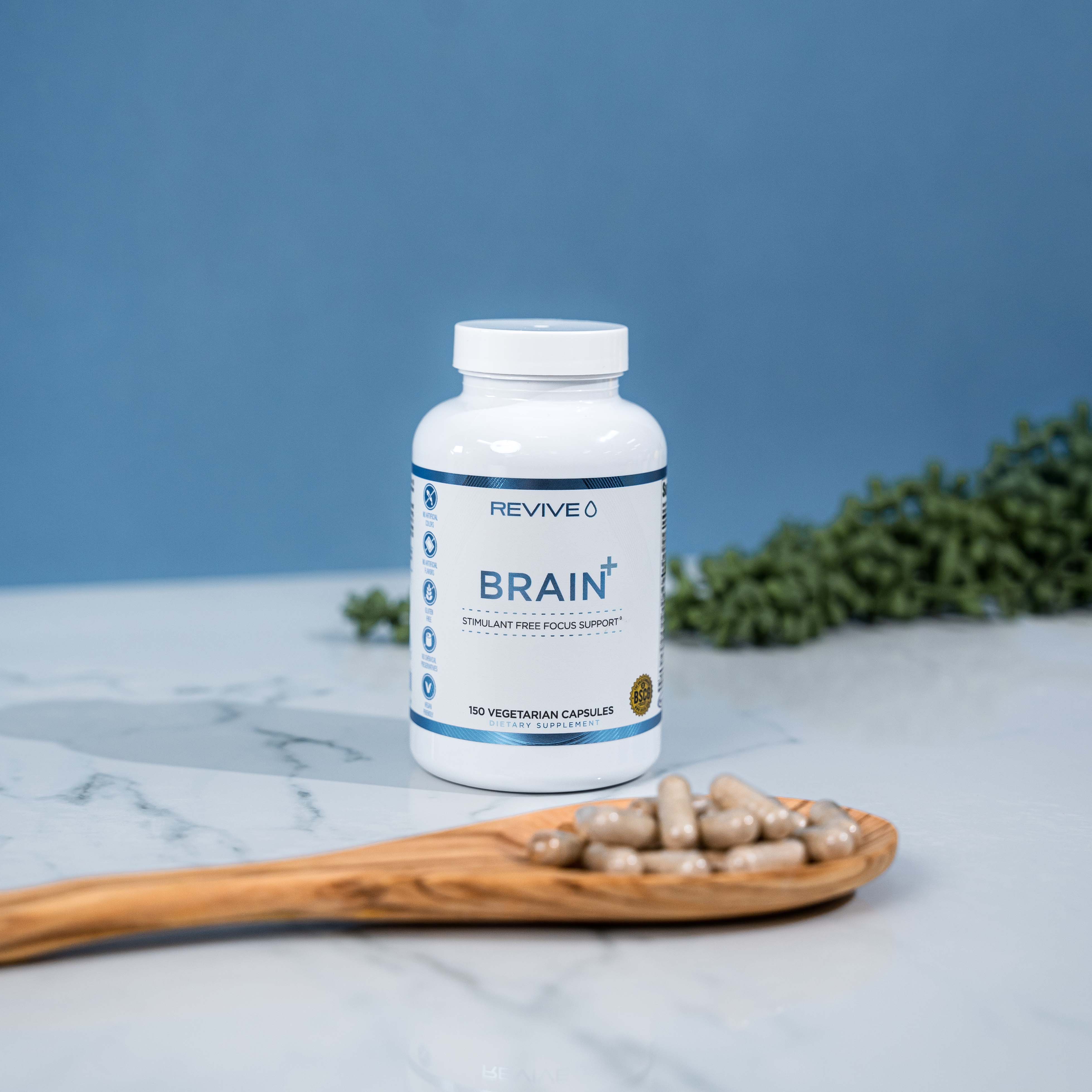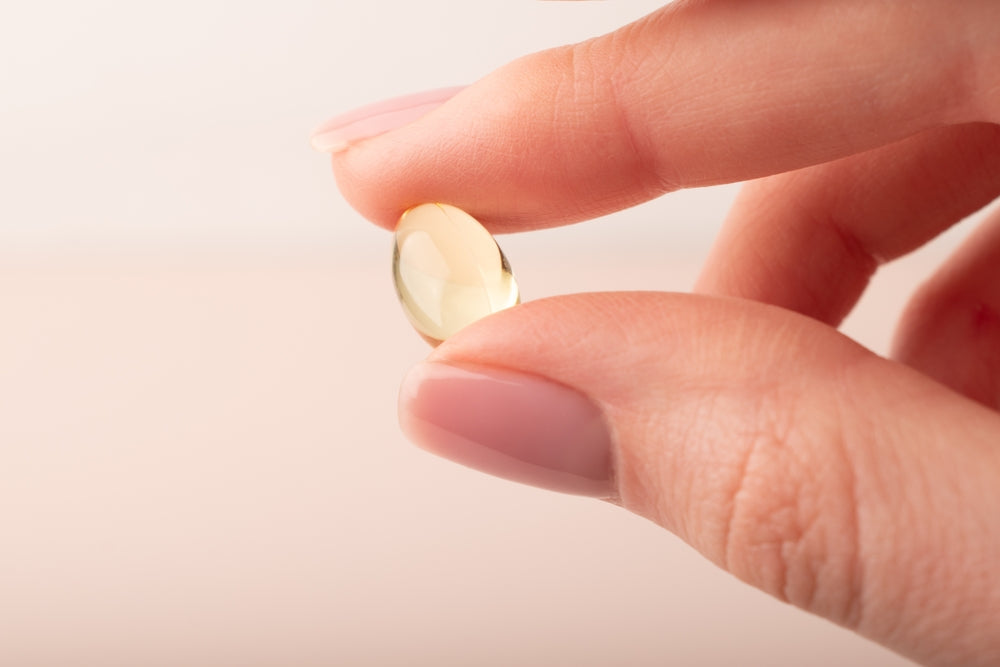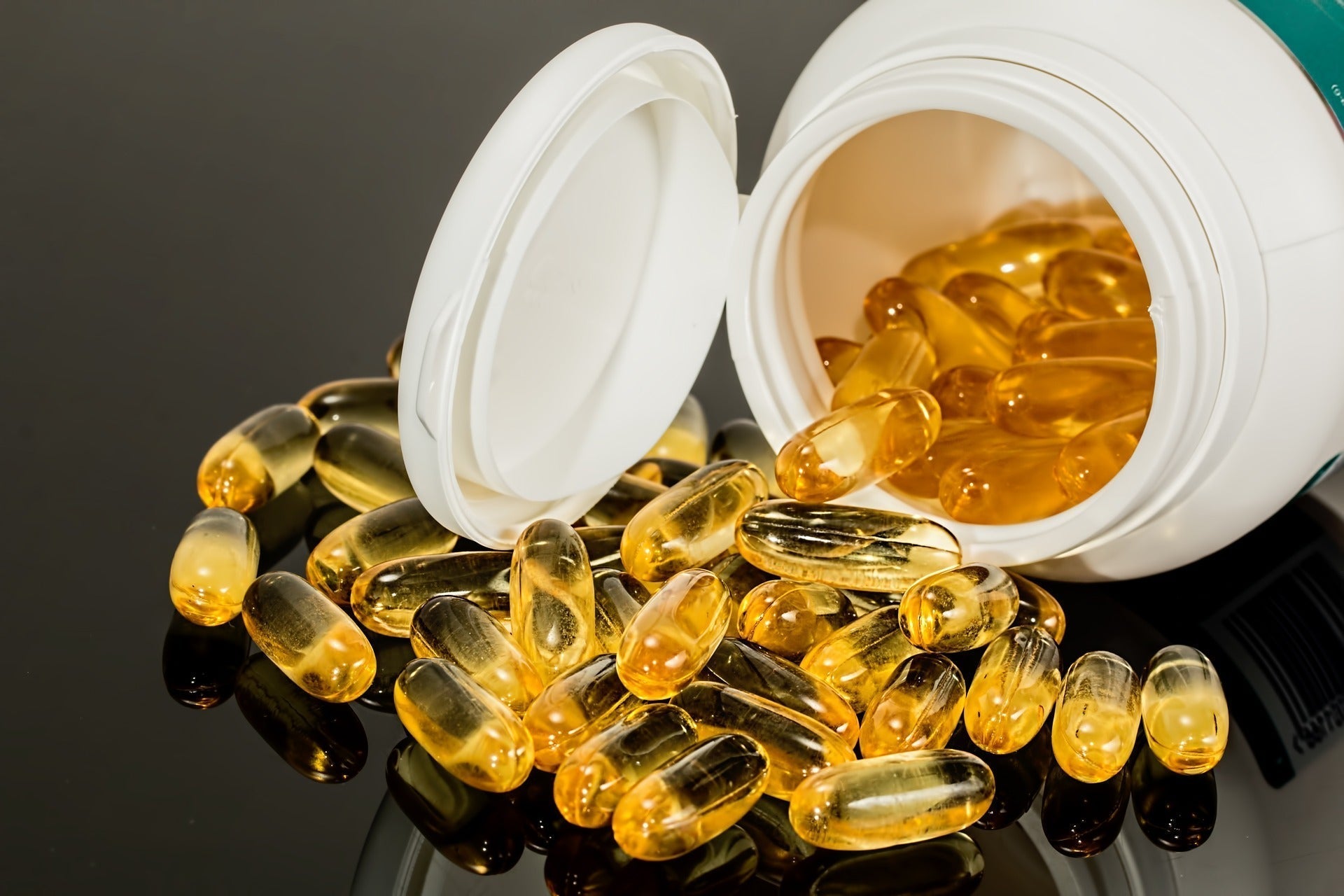Did you know that you most likely don’t need to consume or supplement every vitamin, mineral, and nutrient? We aren’t saying you don’t need them all. What we mean is that many nutrients are considered non-essential.
Your body already produces non-essential nutrients in sufficient quantities on its own. So, unless you have certain medical conditions, malabsorption problems, or increased nutritional needs, you don't typically need to supplement or worry about dietary intake as long as you’re eating a healthy, balanced diet.
However, there are nutrients your body can’t produce on its own. These are considered essential. In terms of vitamins, there are thirteen, including vitamins A, C, D, E, K, and the B vitamins (thiamin, riboflavin, niacin, pantothenic acid, biotin, B6, B12, and folate).
Because your body can’t produce these essential vitamins, you need to be intentional about getting them through food or supplementation. Otherwise, even mild deficiencies can have negative ripple effects on your overall health.
This is true for all thirteen essential vitamins, but many health experts agree there are a few that deserve extra attention, one being vitamin D.
-
Constantly exhausted or not sleeping well?
-
Struggling with a low mood or feeling more anxious than usual?
-
Getting sick more often than normal?
-
Dealing with muscle weakness or bone aches?
These are just a few of the ways your body might be signaling that it needs more vitamin D. Because vitamin D plays a role in so many essential systems, symptoms of low levels can show up in a variety of ways. But even if you don’t have signs of low vitamin D (yet), chances are you're not giving your body enough.
Vitamin D deficiency is one of the most common nutrient deficiencies in the United States. And it’s not just making us tired, sluggish, or more likely to catch every bug going around. Chronically low vitamin D has been linked to a long list of serious health conditions, including depression, osteoporosis, autoimmune disorders, heart disease, and even certain types of cancer.
In this blog, we’ll walk you through why vitamin D is so important, the many benefits it provides, signs that you might be deficient, the best natural sources of vitamin D, and how to choose the right supplement (plus how to know if you even need one)
What is Vitamin D?
Vitamin D, often referred to as “the sunshine vitamin,” is a fat-soluble essential vitamin your body needs to perform hundreds of vital functions, particularly in your nervous system, muscular system, and immune system.
It also helps your body absorb calcium and phosphorus, two minerals that are critical for strong bones, healthy teeth, proper muscle contractions, and tissue repair.
While your body relies on vitamin D for hundreds of biochemical reactions within these foundational functions, it doesn’t naturally produce it on its own. You must obtain vitamin D through your diet or supplementation.
Well, technically, if conditions are right, your body can make some vitamin D. Through a synthesizing process that starts in the skin and involves the liver and kidneys, your body can produce vitamin D when your skin is exposed to ultraviolet B (UVB) rays from direct sunlight.
Because it is technically possible for your body to synthesize vitamin D, you might hear some people call it a non-essential vitamin. However, you can’t rely on sun exposure alone to meet your needs. Most people don’t spend enough time in direct sunlight on a consistent basis.
There are also factors like working indoors, colder climates, pollution, sunscreen use, wearing clothing that covers most of the skin, and even having a darker skin tone that further limit how much vitamin D your body can synthesize from the sun.
That’s why vitamin D is ultimately considered an essential vitamin, with diet and quality supplements being the only reliable way to maintain optimal levels throughout the year.
Why Vitamin D is Important
Vitamin D plays a critical role in immune function, hormone balance, mood regulation, calcium absorption, and more. When your levels are optimal, your body is better equipped to perform a wide range of essential functions, and you’re more likely to feel and function at your best.
Health Benefits of Vitamin D
Some of the potential health benefits of maintaining optimal vitamin D levels include:
-
Stronger bones, joints, and muscles
-
Improved sleep quality
-
Increased energy and daytime alertness
-
Reduced brain fog and improved cognitive clarity
-
A more resilient immune system
-
Better cardiovascular function and heart health
-
More balanced hormones
-
A lower risk of autoimmune disorders and certain cancers
-
More stable mood and emotional well-being
-
Metabolic Balance for healthy weight management
Health Risks of a Vitamin D Deficiency
Vitamin D is a micronutrient, meaning your body only needs it in relatively small amounts. But when those needs aren’t met, the consequences can be far from small.
Without sufficient vitamin D, you could experience both short-term problems and long-term health complications.
Here are some of the most well-documented risks of vitamin D deficiency:
-
Weak or brittle bones (osteomalacia or osteoporosis)
-
Increased risk of fractures and falls
-
Greater likelihood of developing cardiovascular disease
-
Elevated cancer risk
-
Poor wound healing
-
Frequent illness or infections
-
Low mood and increased risk of depression
-
Persistent fatigue
-
Muscle weakness and chronic pain
-
Difficulty maintaining a healthy weight
-
Low blood levels of calcium and phosphorus
As you can see, vitamin D is vital for your health. It's a foundational nutrient that influences how your body functions on a day-to-day basis and how resilient it becomes over time. When low, it can even lead to metabolic disorders and other serious health issues.
Now that you understand why vitamin D is so important for your health, let’s look at how to spot a deficiency and what to do about it.
Signs of Vitamin D Deficiency
Vitamin D deficiency is surprisingly common in the United States, especially among individuals with darker skin tones. Research suggests that nearly half of all U.S. adults have insufficient vitamin D levels, and about 1 in 4 are clinically deficient.
Given that low vitamin D is linked to many health issues and several of the top risk factors for leading causes of death in the U.S., it’s important to be proactive in preventing deficiency and to take action quickly if your levels fall too low.
Lab testing is the only definitive way to know if you are truly deficient. Still, there are many signs your body might be giving you that suggest your levels are suboptimal.
Some of the most common signs of vitamin D deficiency include:
-
Fatigue or low energy
-
Bone pain (often in the hips, back, or ribs)
-
Reduced bone density
-
Muscle weakness, aches, or cramping
-
Getting sick more frequently than usual
-
Depressed mood, anxiety, or mood swings
-
Slow wound healing
-
Hair thinning or excessive shedding
-
Weight gain or difficulty losing weight
-
Trouble sleeping or staying asleep
If your vitamin D levels are low, you might experience one of these symptoms or several. They could be on the more severe side, or they could be very subtle and mistaken for unrelated health concerns or everyday stress.
If you suspect you may be low in vitamin D, it’s worth speaking with your healthcare provider. Identifying and correcting a deficiency early can help protect both your short-term wellness and long-term health.
Best Sources of Vitamin D
You’ve probably heard that you get vitamin D from the sun. That’s true, and it is also in some foods. However, as you will learn, relying on sunshine and diet isn’t always enough. Most people need vitamin D supplements to fill the gaps.
Knowing the best sources of vitamin D can help you make smarter, more intentional choices to keep your levels in a healthy range.
Here’s a breakdown:
Sunlight
Vitamin D is often called “the sunshine vitamin” because your body can produce it when your skin is exposed to ultraviolet B (UVB) rays from the sun. This natural process is the most efficient way for your body to naturally get vitamin D.
But there’s a catch…
To synthesize enough vitamin D, the conditions have to be just right. Your skin needs direct, unprotected exposure to sunlight (meaning no sunscreen and no clothing covering most of your skin) for anywhere from a few minutes to a couple of hours.
The exact duration that is shown to be efficient depends on factors such as your skin tone, the amount of skin exposed, your geographic location, the season, and the time of day.
That might sound easy, but for most people, it’s not realistic. Cloudy weather, indoor lifestyles, long winters, sunscreen use, and having darker skin tones all significantly reduce your body’s ability to make vitamin D from sun exposure.
And even if you do get enough UVB rays, your liver and kidneys must be functioning properly to actually convert sunlight into the active, usable form of vitamin D. So, while your body is capable of making vitamin D from the sun, there are many limiting factors. Most people can’t rely on sunshine alone to meet their daily vitamin D requirements.
For more, read “Benefits and Dangers of the Summer Sun.”
Food
There aren’t many foods that most people eat regularly that contain high levels of vitamin D. If you hope to get enough vitamin D from food, you should aim to fill your plate with several of the following foods consistently:
-
Rainbow trout
-
Salmon
-
Mackerel
-
Halibut
-
Sardines
-
Tilapia
-
Flounder
-
Oysters
-
Cod liver oil
-
Canned tuna (especially albacore)
-
Egg yolks
-
Beef liver
-
Pork (especially spareribs and back fat)
-
Mushrooms (especially UV-exposed varieties)
Fortified Foods and Beverages
Many common pantry staples and beverages are fortified with vitamin D to help people meet their daily vitamin D needs. Look for the words “fortified with vitamin D” on packaging, especially on the following:
-
Cow’s milk
-
Plant-based milk (soy, almond, oat, rice)
-
Orange juice
-
Yogurt
-
Cheese
-
Margarine
-
Tofu
-
Ready-to-eat cereals
-
Some nutritional shakes, vitamin waters, and electrolyte drinks
While these fortified options can help, it can still be challenging to consistently hit optimal vitamin D levels from food and drink alone, especially if you don’t eat fish, dairy, or fortified grains regularly. This is where supplementation may become necessary, especially during the winter months or for those with increased nutritional needs.
Vitamin D Supplements
If you aren’t getting enough vitamin D through sunlight or food (and most people aren’t), a high-quality vitamin D supplement can help fill in the gaps.
Vitamin D supplements come in a variety of forms, including pills, liquids, gummies, and sprays. You might also see that some vitamin D supplements are liposomal or notice that they are labeled as vitamin D2 or D3.
Many vitamin D supplements also include vitamin K2, a fat-soluble vitamin that works synergistically with vitamin D3. In fact, many consider it essential to take vitamin K2 with vitamin D, especially when supplementing.
That’s because research shows that vitamin K2 helps ensure that the calcium, absorbed with vitamin D, is deposited in the bones and not the blood vessels, potentially reducing the risk of heart disease
While not typically added to a vitamin D supplement, evidence also suggests that magnesium (which is another essential nutrient many Americans don't get enough of) is also important for vitamin D function. So, if you don't already, it would be smart to add in a quality magnesium supplement and take it at the same time that you take vitamin D.
Individual needs vary, and some people may require higher or lower amounts of vitamin D depending on age, sun exposure, health conditions, or existing vitamin D levels. However, the most commonly recommended dose of vitamin D for most adults is 5,000 IU (125mcg).
Quality vitamin D supplements are considered safe for most people (it is a myth that it is easy to overdose on vitamin D.) However, it’s important to note that while rare, toxicity is possible if you consume too much. It is advised not to take daily vitamin D supplements containing more than 4,000 IU unless monitored under the supervision of your doctor.
How to Choose the Best Vitamin D Supplement
First and foremost, only purchase a vitamin D supplement from a reputable brand that has transparent labeling (including type, dosage, and any added ingredients), uses pure ingredients that are lab-tested and certified, and is free of filler ingredients and artificial colors.
Another thing to look for when examining the label is that the supplement specifically lists D3 (cholecalciferol). That’s because there are two forms of vitamin D— D2 and D3.
They are both vitamin D, but their chemical makeup and sources differ. D3 is the form of vitamin D that your body makes when exposed to direct sunlight. It’s also the form found in animal sources of food. Vitamin D2 primarily comes from plant sources.
While the type of vitamin D you get is less important than ensuring you get enough to avoid deficiency, of the two forms, vitamin D3 is generally considered the most effective for raising and maintaining vitamin D levels.
Also, be sure to check the label and ensure that the supplement you choose provides 5,000 IU (125mcg) of vitamin D3 per serving. That’s the commonly recommended dose for most adults to maintain optimal levels, especially if you aren’t getting much sun exposure.
Many lower-cost vitamin D supplements contain far less per serving, which might seem like a better deal at first. But if you need to take multiple capsules to meet your daily needs, you’ll go through the bottle much faster and end up spending more in the long run.
At Revive Supplements, we offer two options for those wanting a quality vitamin D supplement.
-
Revive Supplements Vitamin D3: 60 softgels that each contain 5000 IU of Vitamin D3.
-
Revive Supplements D3 + K2: This formula also contains 60 soft gels with 5000 IU of Vitamin D3 with the addition of 100mcg of vitamin K2.
You can also find smaller amounts of vitamin D in our Multi-Vitamin or Essential Vitamins Pack.
As with all Revive Supplements, all of our products are backed by doctors, lab-tested and certified, and contain only clean, premium ingredients (no fillers) at appropriate dosages.
Conclusion
Vitamin D plays a powerful role in nearly every system of the body. It is an essential vitamin you must have in adequate amounts to support immunity, bone health, hormone balance, mood, and more. Yet, most people aren’t getting nearly enough.
Given how common deficiency is and how difficult it can be to get adequate amounts from food and sunlight alone, a high-quality vitamin D3 supplement is one of the smartest (and most affordable) investments you can make in your immediate and long-term health.
For only pennies a day, Revive Supplements Vitamin D3 or Vitamin K2 + D3 makes it easy to support your daily vitamin D needs and feel confident you’re giving your body what it needs to function at its best.



